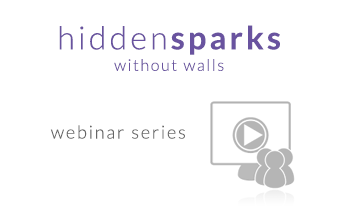Differentiating Instruction in Math Prek-2nd Grade
Join this webinar to unpack the foundational ideas for differentiation in math and examine related strategies Applying relevant learning trajectories, participants will analyze instructional strategies for differentiation such as menus, centers, choice boards, tiered problems, parallel tasks, open questions, and anchor problems. …
Giving Feedback: A Webinar for Supervisors
Differentiating Instruction in Math Grades 3-6
Join this webinar to unpack the foundational ideas for differentiation in math and examine related strategies Applying relevant learning trajectories, participants will analyze instructional strategies for differentiation such as menus, centers, choice boards, tiered problems, parallel tasks, open questions, and anchor problems. …
Literacy GPS: Assessments and Progress Monitoring for Literacy Instruction
Join this webinar to learn about a variety of methods for assessing the five components of reading; phonemic awareness, phonics, fluency, vocabulary, and comprehension, to analyze and inform instruction and then to monitor progress. This workshop is for K-8 classroom teachers, reading …

Battling Bullying Revisited
On the 10 year anniversary of her original webinar, Dr. Novick, a premier expert on bullying, will revisit the topic, its unique characteristics, and impact in the Jewish community. The focus of the webinar will be on what parents and educators can …

Cooperative Learning: Best Practices for Group Work
This webinar will address best practices for cooperative learning, including: considerations of various grouping arrangements, proactive management techniques, and creative variations of cooperative activities. Please download the Chat to follow along.

Harness the Power of Data for Classroom Excellence
Explore the transformative potential of data-driven instruction in the classroom. Participants will discover practical strategies for collecting, analyzing, and leveraging data to personalize learning, monitor student progress, and make informed instructional decisions. Join us as we unlock the power of data to …

Involving Students in the Conversation about Learning Goals
Learn practical strategies for sharing learning goals with students and incorporating goal setting into the classroom. Gain tools to involve students in reflecting on their progress as a means to facilitate individual growth and increase student agency.

Developing a Student Centered Approach
At Kohelet Yeshiva Lab and Middle School’s inception, the administrative team articulated student-centered Learning Principals, derived from what is known about how children learn. Join this webinar to learn about these principles, how they are implemented, and can drive your pedagogical decisions …

The Fundamentals of Universal Design for Learning
Universal Design for Learning (UDL) is a research-based framework that teachers use to design lessons that reduce barriers and increase access to learning for all students. This webinar will introduce the main ideas and key concepts of UDL, which can be used …

Reading and the Brain – Comprehension
To be a successful reader, your students’ brains are required to orchestrate a variety of cognitive domains for each part of the reading process. In this workshop you will have the opportunity to look into what cognitive domains are required for reading …

Learning Gemara- A Task Analysis
Learning Gemara is a complex task involving many cognitive functions and academic skills. Lack of experience or a deficiency in any one of these functions or skills can make the experience of learning Gemara an overwhelming task for a student. In this …

Reading and the Brain – Decoding and Fluency
To be a successful reader, your students’ brains are required to orchestrate a variety of cognitive domains for each part of the reading process. In this workshop you will have the opportunity to look into what cognitive domains are required for reading …

An Orton Gillingham Approach for Teaching Hebrew Decoding
According to research, more than 50% of all struggling readers are not diagnosed with any specific disabilities. Begin to learn how to help them decode Hebrew using a multi-sensory, phonetic approach based on the Orton Gillingham method of instruction. This is an …

Taking Assessments to the Next Level
Assessments can and ought to be an essential component of the student learning process. This webinar utilizes psychological research to shed light on how educators may maximize the opportunities that assessments offer to foster student growth, in addition to evaluating their progress. …

Touchpoints in Jewish Life: How Jewish Milestones Match Up With Child Development
In recent years, bestselling authors have published book after book in the pursuit of supporting parents. As a Jewish community, we have the opportunity to tap into the ancient wisdom that Judaism offers into the process of growing up in very real …

Best Practices for Mentoring and Supervision
This session will explore best practices for mentoring and supervising colleagues and teachers, supported by the research-based understanding of how people learn and grow. It will include suggestions for setting goals, providing effective feedback and motivating change. Sample evaluation protocol and feedback …

Strategies for Effectively Teaching Students with Language Based Learning Disabilities
Every year teachers have the incredible privilege and challenge of teaching students with a range of learning profiles. This session will focus on strategies to teach students with language based learning disabilities. Participants will gain an understanding of what they are and …

Promoting Spirituality in Children
What is spirituality and how does it help children and teens grow into strong, resilient adults? This webinar will explore spirituality through the childhood and adolescent years and provide strategies for building it in our students and children.

Is it Typical? Understanding Child Development in the Elementary Years (CTLE eligible)
For Parents and Educators. How often we wonder why some students can achieve milestones while others struggle to keep up, and if these differences are part of typical development or indicators of more significant challenges? Understanding child development can be an extremely …

Weaving Social Emotional Learning into ELA Curricula (CTLE eligible)
Emotional literacy—the ability to name, manage, and productively express our feelings and to empathize with the feelings of others—is a skill too often neglected in the traditional teaching model. This webinar will outline how elementary school teachers can weave emotional literacy instruction …

Beyond the Workbook: Vocab Building Strategies
This workshop will focus on specific strategies to support students who need a variety of strategies to build vocabulary. We will explore various types of graphic organizers, instructional models, targeted strategies and materials to support and enhance vocabulary instruction.

Designing The Space To Cultivate Creative Capacity
In today’s world, we have an incredible opportunity to provide students with resources and experiences that will help students develop strong creative and critical thinking skills to solve interesting problems in the world. In this session, Michael will share what that innovative …

Developing the Art of Asking Powerful Questions in the Classroom
This session will explore the power of questions in the classroom by examining: Questioning as an effective instructional technique; Questioning strategies that ensure active engagement and whole-class involvement; The Do’s and Don’ts in questioning – how to and how not to ask …

Supporting Students in Their Transition to Middle and High School
Helping pre-teens, and teens adjust to a new department of schooling and the different expectations that accompany it, is an oft neglected but crucial part of education. This webinar will empower teachers of middle school, junior high, and high school to understand …

Multisensory Math Instruction for All Learners
Do you have a few students that you just can’t seem to reach with your instruction? In this webinar, you’ll be learning about why multisensory math is appropriate for ALL learners (K – 12) and why it is essential for students …

Bringing Mindfulness into the Classroom
Mindfulness has shown to effect emotion regulation, focus and awareness, and positive emotions. In this workshop participants will be introduced to mindfulness and how it can improve one’s effectiveness as a teacher both inside and outside the classroom. Mindfulness will be …

Optimizing Your Learning Space with Low Budget Tips and Tricks
Modern learning needs modern learning spaces. As we look to craft curriculum and instruction to prepare our students for further education and careers, it is essential that they have an opportunity to learn in spaces that support this mission. Designing excellent learning …

Tune Up Your Classroom Management: Hard Lessons Learned, Research and Neuroscience
The ability to run an ordered classroom is commonly ranked as one of the most important teacher dispositions, whether at the elementary, middle, or secondary grade level. We now know what tactics help students regulate emotions, engage them, and promote a pro-academic …

“Work it out!??”: Supporting Conflict Resolution Among Students
This presentation will introduce you to the core social skills, communication tools, and conflict resolution techniques necessary to help students solve problems independently of teacher intervention. You will learn how to create socially safe classrooms with unified rules and expectations, integrate problem …

Building Reading Comprehension Skills- Tuning our Technique to the Type of Text
Reading comprehension involves a complex process of your student’s interaction with the texts that they read. This webinar will help you explore the differences between narrative (involving story grammar and causal events) and expository (focused on text organization and structure) text and …

Differentiation for the Busy Teacher (Grades 6-12)
Are you looking to differentiate instruction to meet the diverse needs of your students Do you have concerns about it being too time consuming and complicated, or about it not being “fair”? In this webinar these concerns and obstacles to differentiation will …

Infusing Your Classroom with Montessori Elements (Pre-school – 2nd)
Many of us have heard about the Montessori approach but don’t know much about it, or don’t think that it’s applicable to a typical yeshiva classroom. This session will provide teachers with an understanding of the methodology and approaches presented by Montessori …

How to Have Difficult Discussions with Children
We all know that uncomfortable feeling – we have to have one of those uncomfortable conversations with our children or our students. Whether it is discussing substance use, challenging behaviors, dealing with peer pressure, family issues, loss and trauma, or substance abuse, …

Differentiation for the Busy Teacher (Grades K-5)
Are you looking to differentiate instruction to meet the diverse needs of your students Do you have concerns about it being too time consuming and complicated, or about it not being “fair”? In this webinar these concerns and obstacles to differentiation will …

Giving Effective Feedback
Too many of us dread giving feedback whether it be to our students or faculty. That changes with “feedforward,” a partnership approach to managing people and performance. Based on proven communication and coaching techniques, feedforward shifts the message and methods of traditional …

Focusing In: Strategies for supporting students’ focus
We all know that being able to concentrate and focus for sustained periods is a skill that students need to develop in order to be successful in school. Fortunately, teachers and parents can teach and implement strategies that will help encourage and …

Cultivating and Supporting Self-Esteem in Children with Learning Challenges
Positive self-esteem can make a big difference for children with learning disabilities and attention challenges. When children value themselves, they’re more likely to self-advocate and ask for the help they believe they deserve. When they’re confident and secure about who they are, …

Calm: The teacher’s guide to supporting anxious students
Like most educators, you probably have children in your class who struggle with anxiety. When children and teens are anxious in school they may have a hard time absorbing new information or retrieving previously learned information. This webinar will offer you a …

Making Chumash Come Alive in a Classroom of Diverse Learners
Teachers have to teach Chumash skills to diverse learners, so one-size-fits-all strategies do not always work. In this practical and creative workshop, learn about ways of teaching all of your students the skills they need to master the Chumash lesson, ways to …

Technology and Resulting Changes in How Our Children Think and Learn: Implications for Parents and Educators
Neuroscientists and educators have carefully studied how the introduction, proliferation, and extensive usage of technology are impacting how children think and learn. This HSWOW session will share the latest findings to help parents and educators understand the way today’s children think and …

Back to School: A Proactive Approach to Managing Separation Anxiety in our Students and Children
In this webinar, we will explore the who, what, where, when, why, and how of separation anxiety. Educators and parents alike will learn a proactive, strategy-based approach to utilize for a host of separation situations and consider the vast opportunities for life-skill …

Making Tefilla More Meaningful for Children
Help your students and children find their own meaning in tefilla and establish stronger connections to their davening. During this webinar you will gain a better understanding of the development of prayer in children and adolescents and be provided with some practical …

Fostering Essential Traits for Learning – growth mindset, grit and motivation
Current cognitive research has shown that there are three specific nonacademic skills that are essential for student success. In this workshop participants will learn about the research on Grit, Growth Mindset, and Motivation and how this information can be translated into classroom …

A+ for Teachers: Understanding and Creating Effective Assessments
Tests and quizzes are part and parcel of almost every learning environment, and information gleaned from assessment goes far beyond the letter or number grade. Teachers will learn how to use assessment information to effectively direct instruction both for the class and …

Positive Behavior Support – Motivating With Rewards that have No Salt, No Sugar, and Cost No Money
How can we use the science and knowledge of human behavior to support our children in all areas? This webinar will address myths about rewards and punishments and offer suggestions regarding motivating rewards that have No Salt, No Sugar, and Cost No …

Classroom Management and Proactive Practices
Get off to a strong start this year when it comes to classroom management. This workshop will cover specific strategies, procedures, and teaching techniques to effectively prevent classroom disruptions and allow for effective teaching.

The Math/Brain Connection: Using Current Cognitive Research to Inform Instruction for Struggling Math Learners
The results of ground-breaking brain research now play a role in early detection of future math learning disabilities allowing for targeted early intervention. This workshop will look at the spatial ordering system which governs qualitative number sense, how challenges manifest in the …

A Balancing Act: The Intersection Between Student Temperament and Your Classroom’s Ecology
Do some of your students jump from one activity to another while others are so persistent that they have a hard time transitioning? Do you like to introduce new activities into your lessons but find that some of your students are hesitant …

A Force of Nature: Supporting Strategies for Impulse Control
Does your child struggle with impulse control? Join this webinar to learn about strategies for supporting your child in maintaining self-control. Gain an understanding of the Stages of Development and learn practical strategies such as self talk, the “5 Step Plan”, and …

Take Note: Note Taking Skills and Strategies
Do your students have trouble taking notes effectively? Are their notes acting as study tools? Become a game-changer in the life of your students! This webinar will help you simplify and effectively give instruction for the use of guided notes, Cornell notes, …

Teaching Teens: What Every Educator Should Know About the Adolescent Mind, Body and Soul
Teaching adolescents presents challenges and opportunities. When educators understand adolescent development, and appreciate teens’ approach to learning, their belief systems, their notions about rules and authority, and their passion for meaning and belonging, they can increase the effectiveness of their teaching. Learn …

Getting Leor on the Guest List: Boosting Social Success for Your Students
Teachers play an integral role in facilitating social and emotional competence in their students. Within their academic curriculum, regular routines, and free play, teachers can instruct, model, and direct fundamental social skills that can generalize to all areas of life. Social expectations …

All Over the Place to Keeping the Pace: Understanding Executive Function at Home and in School
If he is so bright, why does he struggle with keeping his materials organized? How can it be that she knows all the answers when I call on her but doesn’t pass a test? Why does he keep bothering his peers and …

Are You Thinking What I Think You’re Thinking? Nurturing Social Thinking In Children
For children who struggle with social learning, day to day life in school can be an enormous challenge. In this webinar, noted author and lecturer, Michelle Garcia Winner, shares some practical ideas for educators and parents to help children with social cognition …

What, Me Worry? Understanding and Managing Anxiety in Our Children
This webinar will explore anxiety and the forms it takes in children and teens. Causes and situationally specific anxiety, such as test anxiety and speaking anxiety will be discussed. Strategies for parents and teachers to help those children and teens who struggle …

Guided Reading in the Early Grades
Guided Reading, a teaching approach used with a small group of students, is designed to help individual students read increasingly challenging texts over time. This webinar will focus on the specific elements of a guided reading lesson. Participants will learn how to …

Children and Screen Time: A Practical Guide to Media Use with Young Children
Part 1 of 3 – for young children In today’s technology-enhanced world, there are many options available for our children: children’s shows, apps, movies on Netflix and more. Participants in this webinar will learn about the effects (both positive and harmful) of …

Screen Time and Bullying
Part 3 of 3 – for middle and high school age As children age, they begin to use technology to connect with peers. With the right guidance, peer-to-peer learning online can have very positive effects. However, recent trends of online bullying and …

What’s Behind Children’s Challenging Behavior and What Can We Do to Help?
This webinar provides a practical overview to the Collaborative Problem Solving approach to working with children who lack the skill to behave well. All children, parents and teachers want to do well. But even with the best intentions, unpleasant confrontations may arise …

It’s Never Too Late To Clean Up Your Act!
It’s never too late to become more organized! By this point in the school year teachers have covered large amounts of curriculum and students have progressed in many academic areas. However, many of these same children have difficulty maturing in regards to organizing themselves, their …

Promoting Social Skills and Social Growth
This webinar will consider how most children develop their social skills, and how to help those children that struggle to do so. The role of parents and educators in supporting such skill development, and the use of formal educational and informal opportunities …

Passive v Active Screen Time (for elementary aged students)
Part 2 of 3 – for elementary school age Not all screen time is created equally. Some screen time for young children can be harmful and other uses of technology can help young learners expand their critical and creative skills. Participants in …

Creating Socially Healthy and Welcoming Classrooms – The Best Bully-Buster!
In this webinar, teachers will consider pro-active approaches that build a sense of community and caring in the classroom. Particular attention will be paid to the unique contribution the teacher can and should make in setting the emotional tone in the classroom. …

Focus on the Shy and Anxious Child
For the shy and anxious child- a child whose fearful or nervous thoughts and feelings impede their academic functioning- school can often be overwhelming and frightening. This webinar will help teachers better understand children who struggle with anxiety and present strategies to …

Temperament- Understanding Children’s Pre-set Tendencies
Why do some children whimper quietly while others howl? Why are some children timid, and others gutsy? And why does a child who is so comfortable in one situation become distressed in another? This workshop will explore the factors of temperament that …

Ecology of the Classroom
Interactions between people and their environment, also known as ecology, must also be considered when thinking about student success in the classroom. Classroom ecology has a major impact on student achievement. Now that school has been underway for a few months, we …

Late, Lost, but not Lazy
In every classroom there will be students struggling with some of the crucial executive functions – the tasks that help us execute our daily activities. These processes such as organization, time management, planning, transitioning and attention are key components to a successful …

Transition to High School
Spring is an excellent time to begin to prepare 7th grade students for their transition to high school. This HSWOW webinar will cover how to teach students about their personal learning styles, and how to become effective communicators and self-advocates for success …

Study Skills
This HSWOW course offers an in-depth look at the skills students need to function in school and the real world. Study skills include organization, time management, planning, listening and summarizing for notes, communication, stress reduction, test taking and goal setting. This workshop …

What’s the Big Idea: Developing Reading Comprehension Skills
Reading comprehension, the process of constructing meaning through active interaction with a text, is the ultimate goal of reading instruction. This HSWOW webinar will focus on various areas of reading comprehension, such as predictions and prior knowledge, questioning, summarization, think-aloud and visualization, …

Assistive Technology
Technology can assist students to overcome difficulties with academic tasks, from accessing information to processing information and creating output. Computer based technology can help students read, write and organize. In this HSWOW course we will focus on several ways to use a …

Internet Treasures and Tools
Technology plays a major social and educational role in schools today. This HSWOW webinar will show teachers how to capitalize on their students’ love of technology to improve their educational outcomes. An abundance of FREE educational resources and web 2.0 tools will be introduced …

Meta Cognition and Self-Advocacy
Students who struggle in school are often very receptive to understanding their individual learning styles: where they have strengths, what are their weaknesses, and which strategies help them become successful in school. This HSWOW webinar will focus on different ways to teach …

Teaching Reading to Students with Diverse Reading Levels
This course will focus on the complex skill of reading. The stages of reading development will be explored as well as the various methods to teach reading to children at different levels. A focus of the session will be on the creation …

Mid-Year Modifications to Your Classroom to Enhance Student Success
It’s December. Now that you’re familiar with your students, this is the perfect time to step back and ask “How can I modify my classroom to further enhance my student’s success?” Using a neurodevelopmental lens, we will consider the demands involved with …

Core Classroom Practices in Judaic and General Studies that Reflect an Appreciation for All Kinds of Learners in the Classroom
Good teaching utilizes a number of core instructional techniques to manage individual student difference in the classroom. By identifying and utilizing these core strategies, and understanding their neurodevelopment underpinnings, both targeted individual students and whole classes will benefit.

How to Ask Questions that Stimulate Students to Think and Learn
When you hear an expert teacher question students it may sound deceptively easy. It is not. Learning how to ask powerful questions of students is a very valuable skill and like any other skill, takes time and deliberate practice to develop. In …

Cooperative Learning: A Way to Differentiate Your Instruction and Enhance Your Students’ Engagement (part 1)
Cooperative learning is an approach to learning that has attracted national attention. It is designed to support high levels of engagement within carefully designed small groups of learners. Many teachers need support in order to develop and implement effective cooperative learning strategies. …

Cooperative Learning: A Way to Differentiate Your Instruction and Enhance Your Students’ Engagement (part 2)
Cooperative learning is an approach to learning that has attracted national attention. It is designed to support high levels of engagement within carefully designed small groups of learners. Many teachers need support in order to develop and implement effective cooperative learning strategies. …

Reading Comprehension Strategy Instruction: Enhancing Understanding of Text
Reading is about understanding and processing; therefore, without comprehension, real reading does not occur. Learn effective comprehension strategies to help your students access prior knowledge, set a purpose for reading, organize information and make meaningful connections to narrative and expository text. This …

Helping Students Discover How They Learn
Helping children to understand how they learn is as important, if not more important, than the content they are learning. In this webinar, we will explore ways to incorporate “learning about learning” into lessons we are already teaching and also discuss developing …

Is it Typical? Understanding Variations in Child Development – secondary school
How often we wonder why some students can achieve milestones while others struggle to keep up, and if these differences are part of typical development or indicators of more significant challenges? Understanding child development can be an extremely powerful and helpful lens …

Is it Typical? Understanding Variations in Child Development – primary school
How often we wonder why some students can achieve milestones while others struggle to keep up, and if these differences are part of typical development or indicators of more significant challenges? Understanding child development can be an extremely powerful and helpful lens …

Transitions
Transitions happen all the time. Most adults have learned to cope and strategize, either from past experiences or by seeking support from people and resources. Children, on the other hand, require the teacher’s leadership, support and explanation to cope with the variety …

How To Talk To Children About Their Learning Strengths and Struggles
Helping children understand their unique strengths and struggles is an essential part of teaching and learning. Utilizing short case scenarios, we will discuss such topics as how to help a child understand complex ideas regarding their learning; How to personalize learning as …

Analyzing A Lesson
Participants will use the neuro-developmental constructs to examine which constructs are primarily demanded in one of their lessons. They will also prepare strategies for their students who struggle with the primary neuro-developmental demands of the lesson. The class will analyze a lesson …

An Overview of How We Learn (Repeat)
This course will discuss the various pathways of learning and how they interact with each other to form a learning profile of strengths and weaknesses. The pathways include attention, memory, language, organization, social cognition, neuro-motor functioning and higher-order thinking. Utilizing hands-on activities, …

Course on Attention (part 1)
“Pay Attention!”; “You’re not trying”; “You re just lazy”; “You re so hyper!” Frequently, teachers and parents make these comments to students who have attention problems. In this two-session, Participants will begin by looking at their own attention strengths and struggles as …

Language, Learning and Literacy: Foundations of Academic Success
Language influences every aspect of the curriculum, affecting the way children learn and teachers teach. This two-session course will focus on the role language plays in learning, including decoding and comprehension, vocabulary and concept knowledge, thinking and reasoning, narrative development, writing and …

Role of Memory in School Success (part 2)
Memory plays a key role in students’ success in school. In this two-session we examine memory from two points of view: the typical memory demands made on students in school and what it is like for a student who struggles with some …

Role of Memory in School Success (part 1)
Memory plays a key role in students’ success in school. In this two-session we examine memory from two points of view: the typical memory demands made on students in school and what it is like for a student who struggles with some …

De-Escalating Intense Behavior (part 2)
This two-session course will discuss predicting and noticing signs of escalating behavioral difficulties in students. It will provide participants with strategies to engage students in these most challenging moments, and strategies to help de-escalate and calm difficult situations. This course will introduce …

Social Cognition: The Science of Relating (part 2)
This two-session course will present different aspects of social cognition. Participants will gain an understanding of what children with strengths in social cognition look like, how difficulties in social cognition are manifested and what children with difficulties in this area experience. Additionally, …

Communicating with Parents
Parent/Teacher communications can take many forms. Whether they are informal chats or written report cards, these parent/teacher communications can be complex. In this session, Participants will discuss effective communications with parents using a rubric to guide the conversation and non-judgmental language to …

De-Escalating Intense Behavior (part 1)
This two-session course will discuss predicting and noticing signs of escalating behavioral difficulties in students. It will provide participants with strategies to engage students in these most challenging moments, and strategies to help de-escalate and calm difficult situations. This course will introduce …
